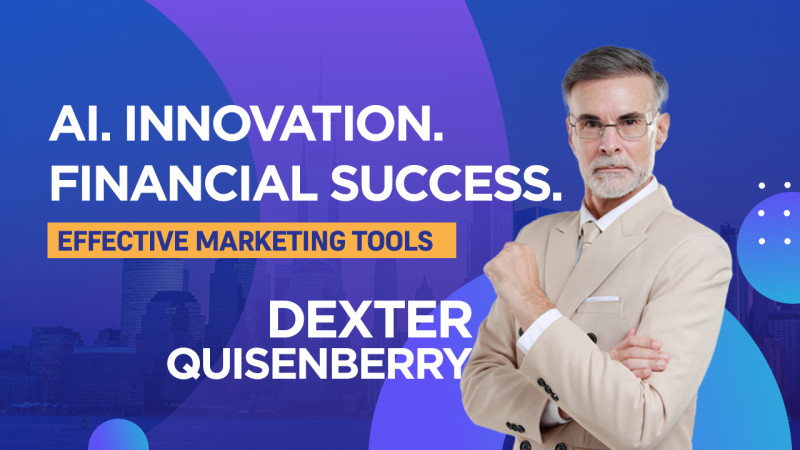Meta leans on 'wisdom of crowds' in AI model release
Meta, the company behind Facebook, has made the latest entry in the competition among tech giants to dominate artificial intelligence.
The company is allowing other firms to freely use the latest iteration of its large language model, known as Llama 2, to develop their own products. It's AI that talks, writes and even appears to think like a human.
Large language models scrape the internet for content and rearrange it in new ways. Similar models provide the computing power behind popular chatbots such as OpenAI's GPT-4 or Microsoft's Bing.
"We believe in the wisdom of crowds," said Nick Clegg, president of global affairs at Meta. Clegg, a onetime British lawmaker, described the company's move as a "win-win situation," whereby an "army of experts" can track how people use and deploy the technology.
Other companies have taken steps to limit the spread of their technology, fearing its misuse. Meta itself scrapped last month a plan to release an open-source version of Voicebox, which reproduces the human voice, over fears it could be used deceptively.
But the release of Llama 2 has proceeded.
Meta's move is not 'charity'
"We're not a charity. Whilst it sounds perhaps counterintuitive that we're making this available for free to the vast majority of those who will use it – and, of course, it's an expensive endeavor to have built these in the first place – it's also in our interest," Clegg told NPR's Steve Inskeep.
"We think that this will help galvanize or help set in motion a kind of flywheel of innovation which we ourselves can then incorporate into our own products... So it's a marriage, if you like, of open innovation and self-interest on our part."
Large language models that can answer complex questions, write term papers or pass exams have galvanized the tech world in the past year. The technology can also produce wildly inaccurate information, which the industry refers to as "hallucinating."
These tools can suck up language and ideas from the internet, and write them out like a human might, but they don't actually know or understand what they're saying. As a result, they can deliver true or false information just as convincingly.
AI creators have dire warnings about its use
Experts consider that just the beginning of potential mischief.
The potentially nefarious applications of AI have triggered dire warnings from some of the very people who helped create the base technology decades ago.
British-Canadian computer scientist Geoffrey Hinton, one of the three so-called "godfathers of AI" who won the 2018 Turing Award, has warned about AI's potential use to spread disinformation and of "robot soldiers" who would kill people on the battlefield.
Clegg stresses that, for now, the technology lacks the necessary agency and autonomy that would make it an existential threat.
"There may come a day when these AI systems and models become extremely powerful, but we should keep them under lock and key. But these models, the ones that we're talking about right now, fall far short of that somewhat futuristic vision," he said.
And while a company like Meta can't eliminate the possibility of the technology being used for nefarious purposes such as fraud or disinformation, Clegg noted that Llama 2 can in fact also help prevent the spread of such unwelcome content.
Experts say AI models are both 'the sword and the shield'
The AI model is essentially "the sword and the shield," he explained. He credits advances in AI for reducing hate speech on Facebook to about 0.02%, down from a high of 50% several years ago.
The models may have additional capabilities that have yet to be uncovered. Clegg suggested they might help credit card companies detect fraud, or doctors improve their diagnoses.
The technology could also allow companies to access super-charged search capabilities without sharing their data with the maker of a language model; they can perform the operations on their own computers.
"This is enormous," said independent researcher Simon Willison. "It gives you effectively a search engine that goes way beyond what search engines can normally do."
Meta does try to limit potential bad actors through an acceptable use policy that users are required to accept. But enforcing possible uses is challenging to enforce. In terms of potential regulation, Clegg advocates for regulating the uses of the technology, not the technology itself.
"I don't know whether it's going to be in 24 months or 24 years when these super-sized, superintelligent models may or may not come about," he said.
"At that point, there's a totally legitimate debate, but it really shouldn't be left to the industry to decide whether they are open sourced or not. And that really should be something for the governments of the day to decide whether they think it's safe to do so."
The digital version of this story was edited by Halimah Abdullah. The radio version was produced by Lilly Quiroz and edited by Olivia Hampton.
Disclaimer: The copyright of this article belongs to the original author. Reposting this article is solely for the purpose of information dissemination and does not constitute any investment advice. If there is any infringement, please contact us immediately. We will make corrections or deletions as necessary. Thank you.







